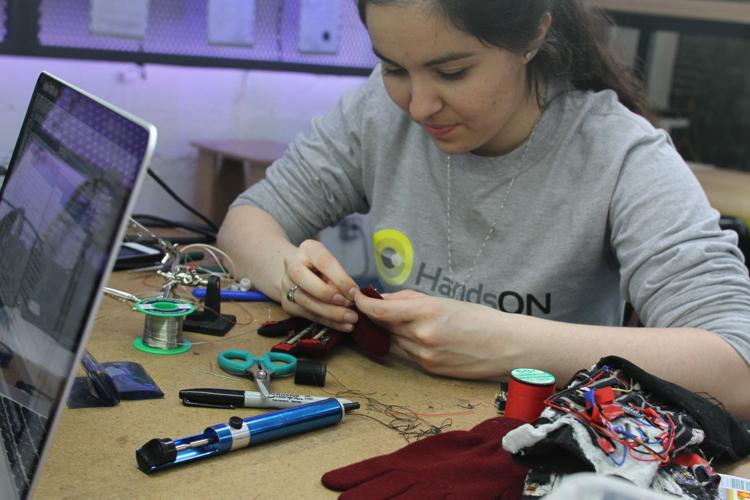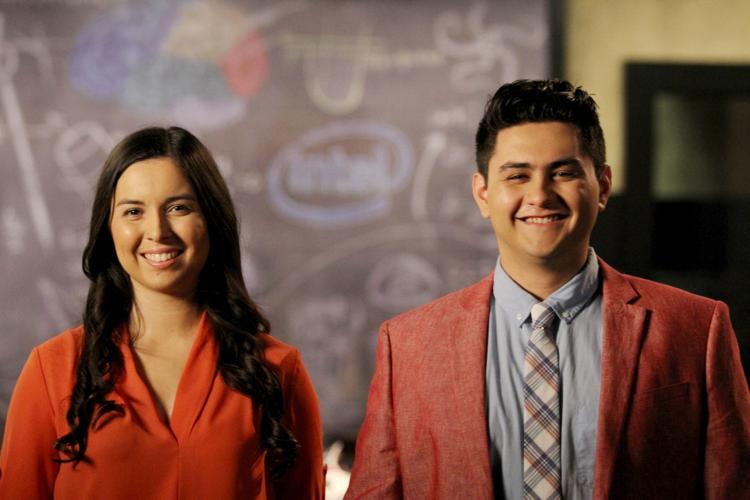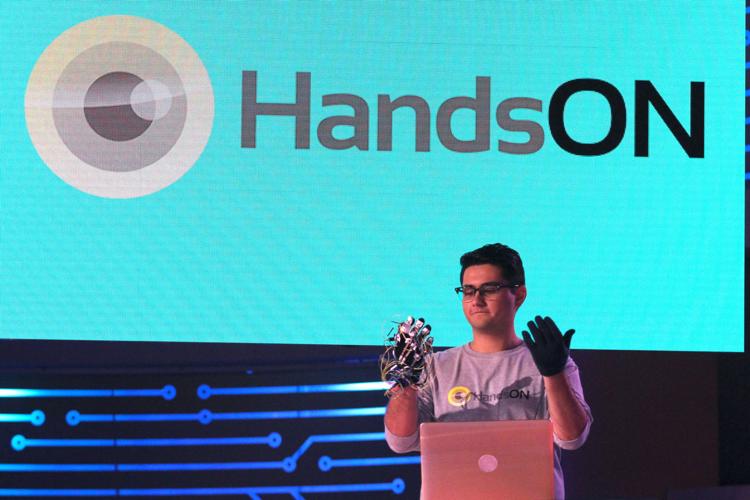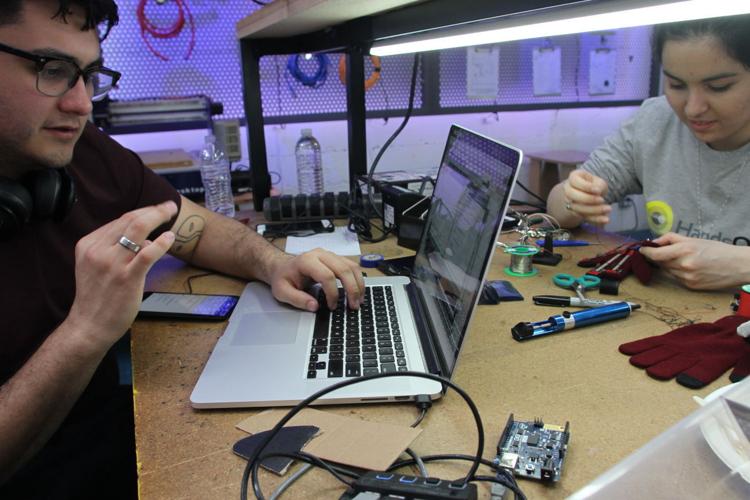Mira Frenkel of Tucson is competing for a $1 million prize on “America’s Greatest Makers,” a TV show about an Intel-sponsored competition to design and build new technology.
She and teammate Brendon Villalobos built a glove that translates the hand motions of American Sign Language into spoken words and text.
The team is one of five finalists and has already won $100,000.
Frenkel, who said she’s been building things since her father bought her a coping saw when she was 10 years old, is currently studying physics at Columbia University, but said her future will contain some element of building and creating.
The $1 million prize will be awarded Tuesday night on the program, broadcast on TBS.
Frenkel, 20, is the daughter of physicists. Her father, David Frenkel, currently works for a NASA contractor, and her mother, Renu Malhotra, is a Regents’ Professor of planetary sciences at the University of Arizona.
Frenkel said she assisted her father from a young age whenever something needed to be put together or taken apart at home.
She honed her skills building sets for theater productions at Catalina Foothills High School and learned welding, electronics and building skills at a UA summer camp called Girls With Tools.
She met Villalobos, a software engineer, through friends at Columbia. He had been invited to try out for the competition. “He needed a partner. He does software and I do all the handy stuff,” Frenkel said, in addition to helping out with the physics concepts and electronics.
Frenkel said the original idea was to place sensors on five rings. Conversations with people in the deaf community convinced them to work on a glove — something that could be taken out when needed and not worn all day.
There are other gloves in development, she said, but “Team HandsOn” has built one that is more comprehensive in its translating ability and more refined in appearance, with no wires and sensors showing.
“We wanted to get rid of that whole mess of wires. We experimented with some different conducting textile materials and pushing the limits of the hardware Intel gave us in terms of small sensors and things.”
Frenkel took a semester off from Columbia to work on the project, but she is back in summer school to stay on track for her physics degree.
She said she initially resisted pursuing physics and had actually intended to major in economics in college. She changed her mind and her major, saying physics gave her “a deeper understanding of how things work.”
The competition has her pondering other ideas for the future, she said, describing it as a crash-course in startup entrepreneurship. “I’m also quite interested in art and that type of making. It’s important to me.”
You can see some of Frenkel’s woodworking and jewelry designs on her website: mirafrenkel.com







